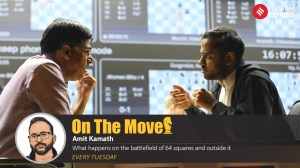Anti-Defection law outdated: Balayogi
NEW DELHI, SEPT 22: Lok Sabha Speaker G M C Balayogi said today that the Anti-Defection Law will have to be scrapped'' if the reported ...

NEW DELHI, SEPT 22: Lok Sabha Speaker G M C Balayogi said today that the Anti-Defection Law will have to be 8220;scrapped8221; if the reported recommendations of the Law Commission that a member elected on a party ticket shall remain with that party until dissolution of the House was accepted.
8220;This recommendation would virtually mean, if accepted and implemented, that the Anti-Defection Law will have to be scrapped8221;, Balayogi said inaugurating the 62nd conference of All India Presiding Officers of Legislative Bodies here.
The Speaker said that there was need to review the 13-year old Anti-Defection Law as it had failed to achieve its objectives.
He said defections had been taking place legally and had an impact on the stability of Governments.
The Anti-Defection law had several ambiguities and lacunae, he said and added it was due to this that the interpretation of the law had become difficult.
Controversies have arisen while deciding on splits in political parties, conclusiveness of splits, engineeredsplits, voluntary withdrawal of membership, consequences of expulsion of members, he said.
He advised the presiding officers not to be involved in controversies because of different interpretation given by them in the application of the various provisions of the Anti-Defection Law.
Balayogi said the Government which enacted this law in 1985 was a majority Government and did take into consideration its political experiences of over three decades.
8220;Coalition do involve management of contradictions, harmonisation of competing interests of alliance partners8221;, he said adding that the need of the time was to reconcile the stability needed for socio-economic development of the people with the political dynamics inherent in governance through coalition.
Narrating his experiences in Parliament and in Andhra Pradesh, Balayogi said the problem was not really in the regime of rules of procedure, but in their compliance.
He said keeping in view the limitations of time in every session and every sitting of theLegislative bodies, fairly tight rules of procedure were established for operating various Parliamentary devices 8212; question hour, half-an-hour discussion, adjournment motions, substantive motions, short duration discussions, calling attention motion, no-confidence motions, private member resolutions, petitions from public.
Balayogi said the consideration of demands grants get guillotined as even listed items of business get postponed in the name of emergent matters of public importance and urged party leaders, chief whips and Legislators to cooperate and subject themselves to strict time discipline.
He said members of Legislative bodies, particularly newcomers and juniors entertain serious grievances in regard to opportunities given to them in time allotment as parties have tendency to allocate the lion8217;s share of the time to their senior leaders.
On equitable distribution of time amongst members also, he said, it was for the parties in the house to play the appropriate role.
- 01
- 02
- 03
- 04
- 05































